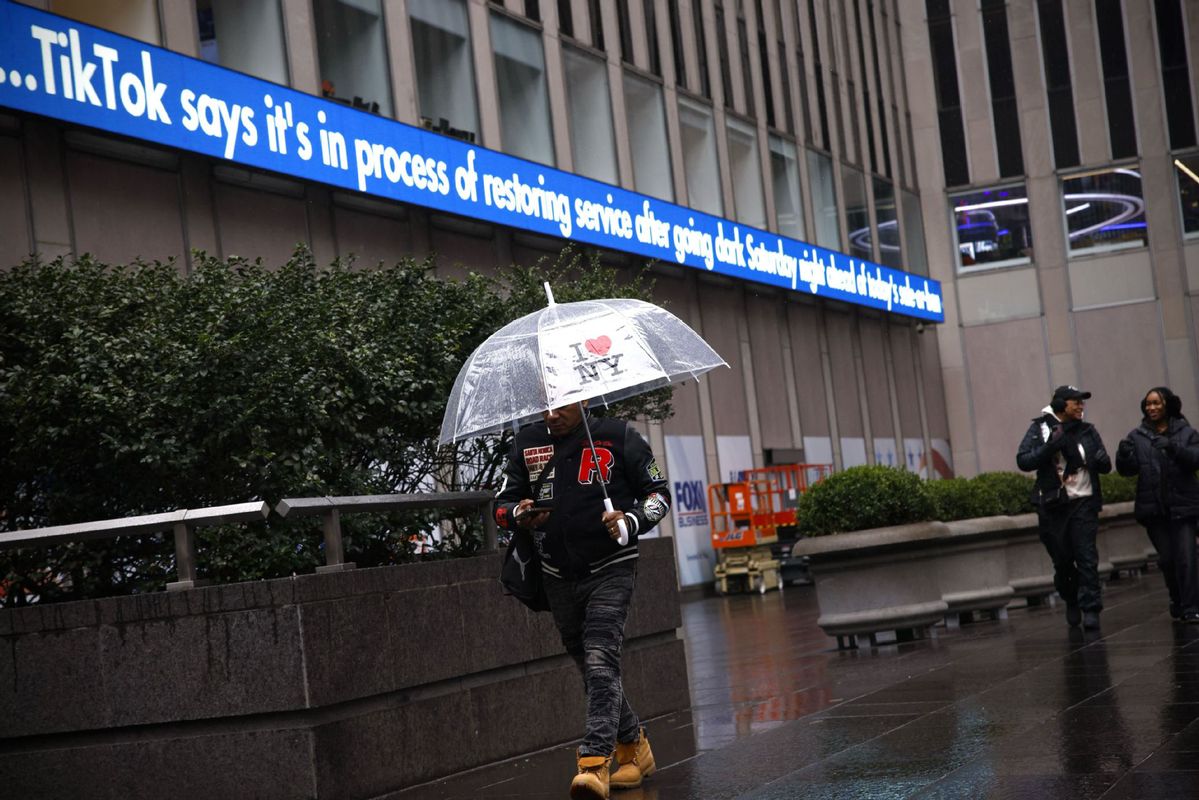
A display shows information about TikTok outside the Fox News building in New York City, US, on January 19, 2025. [Photo/Agencies]
For every action, there is a reaction.
The US Supreme Court sided with the outgoing Biden administration and drove a stake in the heart of the Chinese-owned app TikTok in the United States. It seems there is a consensus in Congress that China is viewed as a threat on multiple planes by the US government.
On Capitol Hill, there is a lot of speculation on what deals President Donald Trump may cut with China, and other adversaries and allies alike, now that he is back in office.
As the enforcement of the ban on TikTok was delayed for 75 days after Trump's executive order, the younger generation in the US is migrating in droves to a new Chinese app, Xiaohongshu, or Red Note, in English.
Xiaohongshu allows users to post photos, videos and text. While boasting more than 300 million active users monthly, Xiaohongshu's reach is significantly less than that of other popular apps in China, such as Sina Weibo and WeChat, which claim 1.2 billion-plus users.
But its numbers of American users are surging. Some of them describe themselves as "TikTok refugees", and they are flooding the app's "Discover" page, seeking help on how to use Red Note.
Red Note's use among younger consumers in China soared during the COVID pandemic and is now reportedly valued at $17 billion.
As someone who has spent a better part of my life attempting to build economic, cultural, educational and people-to-people bridges between the US and China, I expected such an organic explosion of interaction between the youth of our respective countries.
We need to strengthen our educational, cultural and subnational collaborations exchanges, which have receded in recent years. Those people-to-people connections are the foundation of understanding and mutual respect that fuel the most important bilateral relationship in the world today.
Our respective government leaders need to acknowledge that once the seeds of an idea are planted, they can grow, even in seemingly unfertile soil. As Deng Xiaoping once said, "When you open the window, all the flies can come in."
I have long held that the destinies of the United States and China are inextricably linked and that either we're going to have a peaceful rise, with tensions from time to time, or we're going to sink together.
China hawks such as the new Secretary of State Marco Rubio and national security adviser appointee Mike Waltz have argued for "decoupling," disengaging or "de-risking" in relation to China.
But perhaps a bigger risk would be allowing domestic political pressure to drive our two countries further apart while being ever vigilant about our own national security.
As America transitions to a second Trump term, leaders of both nations need to focus on ways to implement what I refer to as the Seven C''s: communication, collaboration, cooperation, coordination and competition, while avoiding unnecessary confrontations and conflict.
TikTok, the clock is ticking, with the alarm being national security for both nations.
The author is former president and CEO of the Economic Council of Palm Beach County, a Florida-based nonprofit, nonpartisan organization that supports an open and collaborative relationship between the public and private sectors in Palm Beach County.